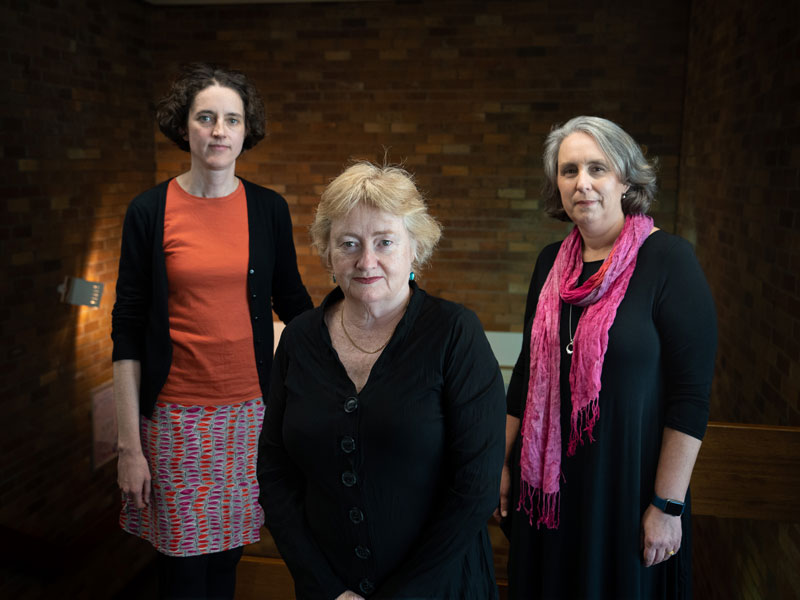Australian Catholic women are echoing their international sisters' hunger for church reform, new research has shown.
New analysis of the world-first International Survey of Catholic Women completed by Dr Tracy McEwan, Dr Kathleen McPhillips and Dr Miriam Pepper from the University of Newcastle's College of Human and Social Futures, has found widespread support of church reform across the 1769 respondents identified as residing in Australia – equalling around 11 per cent of the full dataset.

The results come as the world awaits the landmark Synod on Synodality at the Vatican this October – a rare invitation for members of the global church to contribute their thoughts on church matters. The researchers hope their important analysis will contribute to conversations around the status and inclusion of women across church contexts.
"Australian survey respondents were primarily found to be active in their parishes and listed their Catholic identity as very important to them, however they also expressed frustration at the discriminatory structures of the Church. It is vital that the upcoming Vatican synod does not discount the insights of this cohort," said Dr McPhillips.
Consisting of both closed and open questions, the survey generated unparalleled insight into the thoughts and concerns of Catholic women, including poignant first-hand accounts of the experiences of women across all ages. Questions related to issues including abuses of power, LGBTQIA+ inclusion, female leadership and sexual and reproductive freedom.
Some Australian responses included:
I love my Church, but I wish my Church loved me more" (56 to 70 years).
I feel as though I am not welcome as a woman and as a member of the LGBTQIA+ community" (18 to 25 years).
I am deeply embarrassed and hurt by the way that the Catholic Church has handled years and years of sexual abuse" (26 to 40 years).
Despite the overall support for reform, Australian Catholic women were more conservative than their international counterparts, with strong differences by age not seen in other countries.
"Older respondents were more supportive of reform and change than their younger counterparts across most themes, with younger respondents more likely to convey conservatism," said Dr Pepper.
In response to the question 'I support reform in the Catholic Church', just 21 per cent of respondents aged 18-40 strongly agreed, as opposed to 83 per cent of those aged over 70.
"The contrast could be because older respondents are at a different life stage. They've experienced frustration, having worked for reform and seen resistance, so they're expressing a desire for reform more strongly. Another possible reason is that the young women who completed the survey, are slightly more conservative than the Catholic population of young women as a whole," explained Dr McEwan.
Conservatism in younger respondents was echoed in questions on LGBTQIA+ inclusion and freedom of conscience about sexual and reproductive decisions.
"However, it's important we don't overemphasise these differences. On the whole, we still see high levels of concern for women in the Church in Australia," added Dr Pepper.
The International Survey of Catholic Women was commissioned by international group Catholic Women Speak. Between March and April of 2022, more than 17,000 Catholic women across 104 countries shared their insights on the church in response to Pope Francis' invitation for Catholics to inform the Synod on Synodality.
"This is a momentous time of change for the Church, and I think many of the women expressed a sense of hope that this synod would bring about constructive reforms for women in the church," said Dr McPhillips.
On International Women's Day in March 2023, co-author Dr Tracy McEwan was invited to present the international findings at the Vatican and was able to hand a copy of the report to Pope Francis.
"The International Survey of Catholic Women global report has been well received by the Vatican. We hope that the Australian representatives to the upcoming synod meeting will take note of the findings of this analysis, and convey the views of Australian Catholic women," said Dr McEwan.






